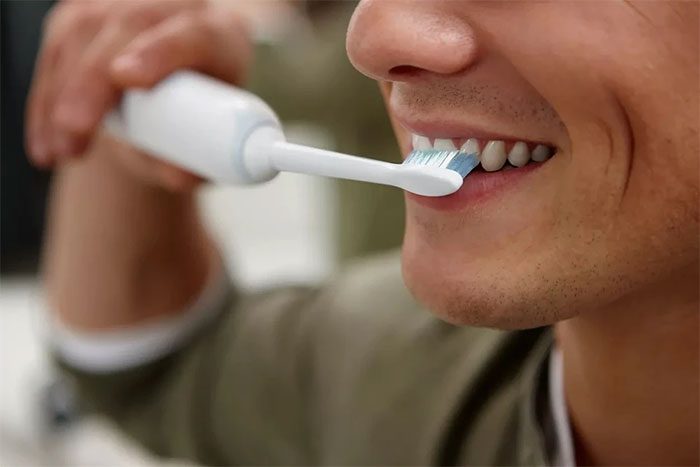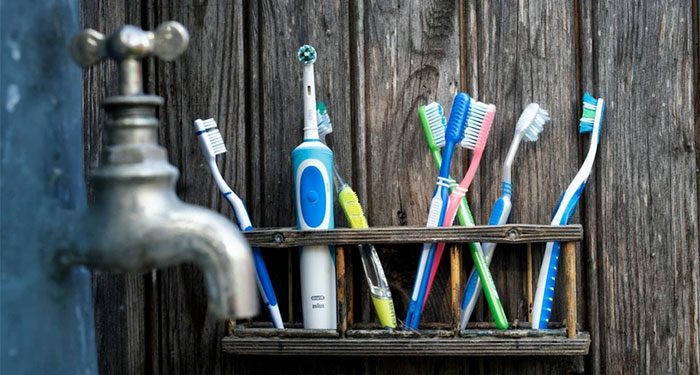There are several misunderstandings and unclear information about electric toothbrushes that cause many people to hesitate when considering switching their daily oral hygiene tools.
For many years, dentists have encouraged patients to switch to electric toothbrushes, due to the enhanced benefits over traditional toothbrushes.
According to Mya Care, traditional toothbrushes still dominate the market with a 75% market share, but electric toothbrushes are gradually finding their place in oral hygiene products, with a market size of approximately $2.9 billion in 2020.

Electric toothbrushes are becoming the daily oral hygiene choice for many. (Photo: VP1).
Toothstars states that research has shown electric toothbrushes provide a higher cleaning efficiency compared to traditional ones. However, several reasons and misunderstandings below sometimes make consumers hesitant to switch to electric toothbrushes.
No Difference in Cleaning Effectiveness
There is a viewpoint that traditional toothbrushes can clean teeth just as well as electric toothbrushes if used correctly. This may have been true for the first electric toothbrushes on the market 60 years ago, which had technological limitations at that time.
With today’s technology, modern electric toothbrushes can remove plaque 10-50% more effectively compared to traditional brushing methods.
There was a time when a clear distinction existed between expensive and cheaper electric toothbrushes. However, as technology continues to develop and more models become available on the market, affordable electric toothbrushes now offer nearly the same effectiveness as luxury brands.
The difference in price may come from integrated features, such as various brushing modes or Bluetooth connectivity.
While high-end models may offer optimal cleaning capabilities, the best approach is to focus on electric toothbrushes that fit your budget and usage needs.
How Effective Are Electric Toothbrushes?
Early electric toothbrushes often had strong power and high abrasiveness. Therefore, if not used correctly, they could cause damage to teeth and gums.

Electric toothbrushes are suitable for those needing advanced oral health care. (Photo: Unsplash).
However, top-quality electric toothbrushes today are often equipped with sensor technologies that can alert users or temporarily stop operation to remind them to brush correctly for optimal results and to avoid oral damage.
For toothbrushes without sensors, users should pay attention to their brushing technique and avoid applying excessive force.
Electric toothbrushes today are suitable for anyone interested in oral health and hygiene. Evidence of their effectiveness compared to traditional toothbrushes suggests that using electric toothbrushes is recommended for all oral health conditions.
For individuals with specialized oral health issues and recommendations from dentists, switching to an electric toothbrush can have a more significant impact.
Electric toothbrushes benefit not only adults but also children. Kids using electric toothbrush technology can find it engaging and develop healthy habits. Children can also learn how to use electric toothbrushes correctly from a young age, according to Hammer.
Both young people and adults can equally benefit from the technology that electric toothbrushes offer.
Electric toothbrushes are considered an upgrade from traditional toothbrushes and are an option for those wanting to improve their oral health due to their ability to clean areas that traditional brushes struggle to reach.


















































